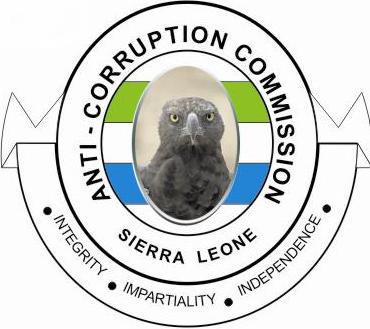By: Bernard Abass Kargbo
Several years back, my grandfather was a Paramount Chief, so was my great grandfather. As a little boy, I would sit at the court yard not necessarily doing anything, but just as any child would, especially during the holidays, to play. The courthouse was always very busy and packed with people who would most times not recognize or pay heed to my presence. My grandfather was, as most would believe, a very straightforward man who delivered just judgments without fear or favour. As time went by, I always wanted to be like him as people admired him so much.
It was a common practice for people who came to visit him or report matters in his court to bring gifts and a lot of pleasantries. Those who brought the best of gifts were always heard first or judgment would mostly go in their favour but as a little boy it was hard for me to understand why, especially the wealthy, would always bring gifts for my grandfather.
It became clear to me as I grew older, that it was an accepted and welcomed practice that if you were going to visit the chief you had to bring something to make him happy with you; keeping the chief happy means receiving a lot of favours in return.
This is the home I grew up in and that is the mentality that our community had developed over the decades, that you can gain favour from those in authority only when you please their personal needs or pockets.
At that time I didn’t know what corruption was- how would a little boy in primary school know, especially so when he was a direct beneficiary? As I grew older I started to question my grandfather as to why people would bring all sorts of goodies for us, especially those that had cases in his courthouse. His quick answer was “My boy, nothing goes for nothing”. It was still hard for me to grasp what he meant back then. Talking also to community people, they would say similar things but sometimes in a different way like “If you are in the good books of the Paramount Chief you will always have your way in his court.”
It was not until a few more years that I came to realize that all the people bringing us gifts were receiving favourable verdicts from the court no matter how awful their cases were. It was then I came to realize that those acts of dispensing justice could be termed as bribery and that my grandfather was actually abusing his office.
The aforementioned story, though fictional, is prevalent in many local courts and public institutions today. The sad thing is many see it as the normal way of doing business and even part of the work culture – that a public officer should be offered a tip or gift before or after carrying out their lawful duties. This practice has been deeply rooted in our heads and minds. We have not left it with our grandfathers in their traditional courts, we have brought it with us to the public service and our different work places.We now feel that before getting something done we have to give something.
With this mentality imbibed in our communities and people, it makes the fight against corruption a very difficult task, as those who wish to go by the laid down rules and policies are often treated with scorn.
Bribery and other forms of corruption have eaten deeply into the fabric of our society to the extent that we normally see them as part of our culture and tradition. When we visit a chief in whose court we have a matter to be decided, we hold the belief that tradition compels us to present them with a bribe often known as ‘kola’. The problem normally arises from the fact that there is no policy or guideline on the quantum, manner, time and occasion a ‘kola’ can be offered to a chief or someone holding a public office. For example, a gift cannot be just a ‘kola’ if it involves Ten Million Leones and offered to a chief at a time when a matter is to be decided. So also a contractor cannot offer a gift to the head of an institution at a time when the said contractor is competing for a particular contract in the said institution. So in effect, the quantum and the time of a gift are normally very important in imputing the intention of the person soliciting, offering or accepting the gift.
People in authority are servants and must be allowed the free will to do the right thing outside bribes and patronage. Our inability to avoid bribery is most times connected to our belief that without it, judgment, for example, would not go our way. Should we be serious about our growth both as citizens and as a nation, we must first see bribery as the killer lubricant in the public service.
This is why the role of the Anti-Corruption Commission (ACC) over the years has been commendable. The Commission has ensured that bribery and other forms of corruption are given the due attention they deserve. The services of the Commission’s lethal Scorpion Squad continue to send shivers in all public servants that bribery and corruption cannot and will not be the way of life. It is due to these interventions that the country and the Commission have received all the widely publicized accolades and recognitions in the last three years.




